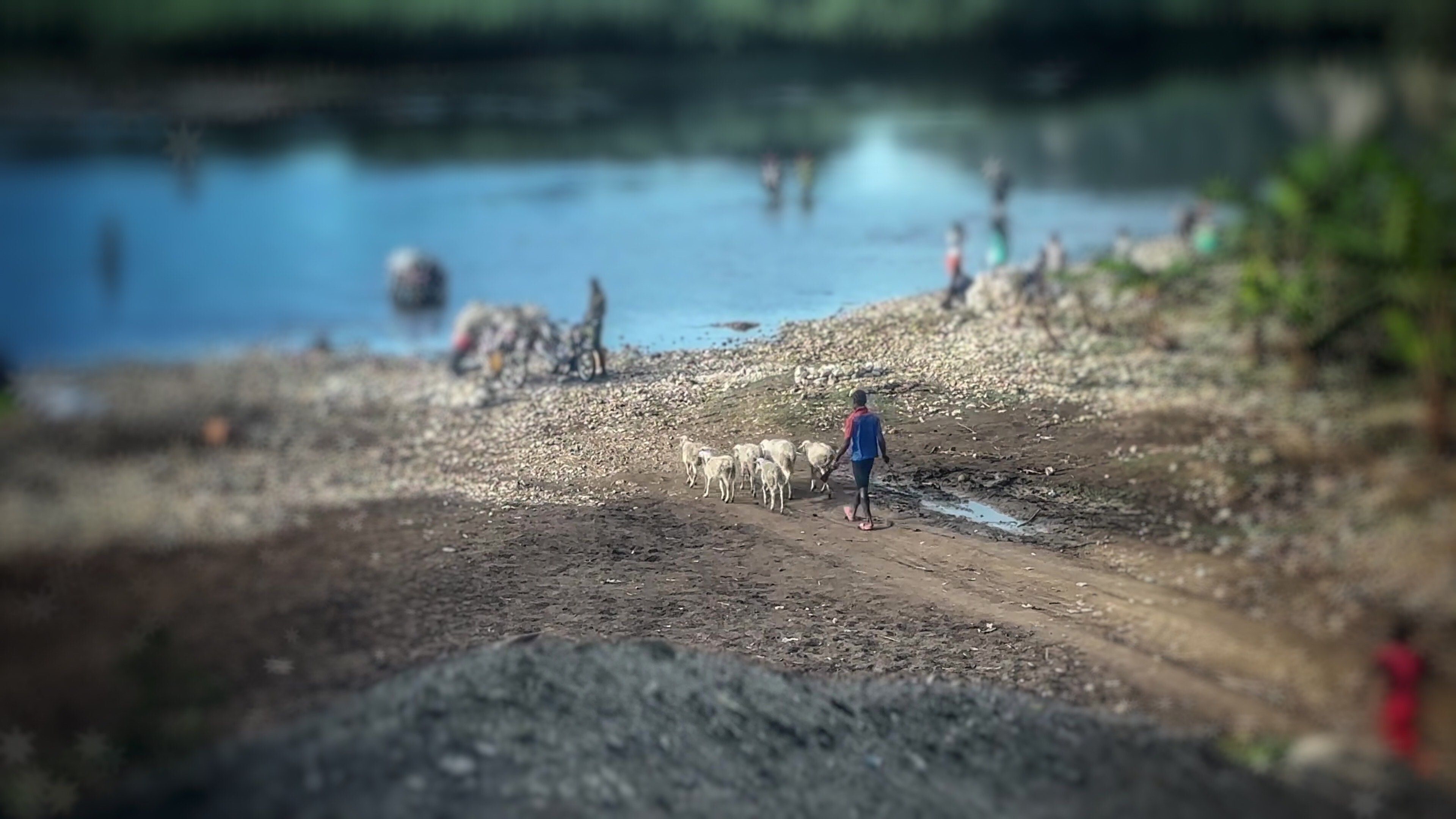
The Lost Sheep
A Haitian Parable
FEB 5, 2024
Sefab is a famer and shepherd in rural Haiti, living in the Grand Anse River valley on the southern peninsula. He lives in poverty, even by many Haitian standards. Much of his day is spent moving his sheep from one grazing area to another. One of the challenges is that there is no land which he can call his, aside from a small shelter made of sticks and tarp used as his home. The land on which his sheep graze is unattended community land, available sparsely and separated by distance.
On this particular day, he needed to move his flock of sheep from the west side of the river to the east. Further to the east and up the mountain lay areas he hoped his sheep would find new food. While there are no large predators, save man, in Haiti, the terrain itself can be treacherous. The river represents one of those dangers. Sefab must cross it regardless.
He holds a long, thin, flexible tree branch and uses it to guide the sheep on the flanks of the formation down the dirty, rocky, and dusty road toward the least perilous river crossing. It is an area of the river that others in the community use to water or wash their animals, to perform laundry duties, or to simply bathe, sometimes with soap.
At the time of this crossing, there are a few dozen people occupying the water. Some are washing themselves. One young man is washing his small motorcycle taxi. Two young women are bathing, clothes on, thereby accomplishing laundry at the same time. Another two young men are on the far side of the river, shovels in hand, digging holes in the shallow parts of the far shore to find sand to fill bags to eke out a living. A goat and another sheep, not of Sefab’s flock, are tied up to rocks on the nearest riverbank.
The path from the road down the river is steep, eight to ten feet in height from the road to the river. The sun is hot, the air is humid. The river is deeper than it was yesterday. It rained overnight in the river valley. All rivulets and slopes spilled into the river from the rain which fell on mountains upstream. Sefab knew not to trust his sheep on the small footbridge located half a mile upstream. If the sheep panicked and fell, he might lose more than one to injury.
These sheep needed to eat. Sefab needed them to cross the river.
He guided them forward, down the sloped ramp, and into the current. The smaller sheep had a more difficult time than the others. Two of them began to float. They began to kick their legs to swim. Two more bobbed up, buoyant, and begging to swim forward. Sefab could safely wade across. The water was little more than waist-high to him.
The smallest of the sheep then began to float downstream, struggling to stay afloat. Sefab glanced to his left, but knew the other sheep still needed prodding forward toward the far riverbank to avoid the whole flock floating away. Once they were safely ashore, he turned his attention to the smallest sheep.
She bleated in a high-pitched tone of distress. She had struggled before and made it, but Sefab turned his attention toward her regardless. He could not afford to wait long. Some might expect him to accept this littlest sheep as a loss. If he tarried for too long without giving attention to the rest of his flock, he could lose others as well. After another two minutes of panicked swimming on the part of the smallest sheep, she was able to make it ashore. Sefab regathered his herd and pressed onward.
Shepherd and sheep marched down the road leading up the mountain ridge toward the villages of Lori and Plik. The road runs alongside the mountain. It was cut decades ago and does not receive maintenance. The road poses a challenge for navigation by motorcycle taxi and is doubly difficult to traverse via pickup truck. Heavy rains cut draining troughs along the length of the road.
One side of the trail is the side of the mountain that was cut away during the road’s construction. Signs of ancient geologic uplift are evident. Layers of limestone, created from prehistoric, submerged coral, create large diagonal bands interspersed with fractures, tree roots, and vines.
On the other side of the trail is a steep drop. The slope can be navigable on foot or hoof, but not by conveyance. Some intrepid farmers grow small patches of corn on the cliffside. It’s the only arable land they have available.
The road switches to the left and right. A steady rise in elevation is succeeded by a shorter fall, then by a quick bend to either side. It was at one such rise and fall transition that a moto-taxi, coming in the opposite direction of Sefab and his flock, revved its engine and startled the small lead sheep. She took off running, downhill, at breakneck speed.
Sefab, guiding from the rear of the flock, was powerless to catch her. As she ran, she glanced left or right, slightly veering toward the side she turned her head. A switch in the direction of the path to the right and tall plantain trees blocked Sefab’s view of his lost sheep.
The path, composed of crushed limestone and small rocks, was dry and dusty up here in the mountains. Last night’s rain hadn’t affected this area. Though with its steep grade, it would have drained quickly of rainfall. No trail of the sheep was discernible.
Knowing the need of his flock and hoping to find his lost sheep, he continued forward. He sang a song, “Mwen chache ou, mwen chache ou!” which translates in English to, “I search for you, I search for you!” This was initially meant to be a way for him to project his voice and allow his lost sheep to hear him and come back. After a few rounds of repetition, Sefab’s mind began to wander to remembrance of a time when he was searching for meaning in his life. That search for meaning, for him, became a search for God. When he found Jesus he rejoiced, having freshly known that recent searching. Singing to his lost sheep, he was brought back to that same pre-jubilant anticipation.
Rounding a turn to the left and coming around another mountain, Sefab and sheep were met by a thick cloud hanging in the air above the valley floor but stuck against the mountainside as if anchored. He continued in song, passing fog-obscured shapes of trees, rocks, shrubs, and huts. Suddenly, he sees a contrasting shape against a mapou tree.
His panicked and lost sheep had become lost in the same fog and huddled against a large tree for security. Overjoyed, Sefab’s song became louder. The same melody changed its lyrics, turning to, “Mwen jwen ou! Mwen jwen ou!” Sefab picked her up and placed her on his shoulders. She let out a loud baa in a tone reserved for a child calling a parent, not out of distress, but out of joy and affection.
The newly and fully reunited flock and shepherd soon made it to Lori, continuing in song. When others in the village heard the song, not knowing the circumstances, but hearing the joy in the shepherd’s voice, they joined him in chorus. When the lost is found, the whole world rejoices, regardless of the circumstances which led to the loss. It is the finding and reunion that is joyful.





